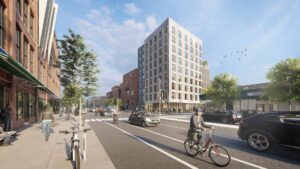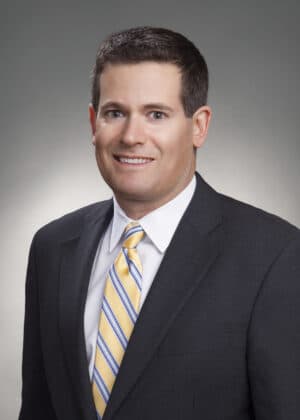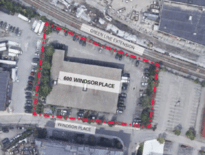Jason Korb
Principal, Capstone Communities
Age: 45
Industry experience: 22 years
In just over a decade, Capstone Communities has completed more than $60 million worth of multifamily developments in Greater Boston, ranging from market-rate to 100 percent affordable developments. But its proposal for a 48-unit affordable development at 2072 Massachusetts Ave. in Cambridge became a battleground between preserving an existing neighborhood’s character and housing production. In the meantime, Capstone is moving forward with projects on the South Shore and in central Massachusetts. The Newton-based firm is converting a former Bridgewater school into 57 apartments, including a 90 percent affordable component. In Templeton, Capstone is seeking approval for 50 multifamily units including redevelopment of a former elementary school.
Q: What’s the history of Capstone Communities and its business model?
A: I started my career at Fenway Community Development Corp. as a community organizer and moved on to Beacon Communities and ran a lot of their tax credit deals. I feel like I got my PhD at Beacon working with some of the best people in the business on a lot of iconic projects. The Haverhill Board of Trade building, 150 units of mixed-income housing, was the project that set off downtown Haverhill’s renaissance. In 2010, I decided to go off on my own. I always had an entrepreneurial spirit, and David Chilinski was an architect on a number of projects I worked on at Beacon. He gave me space in an attic at his office, and that’s how my company kicked off in Inman Square. I didn’t have a project, so I went online and found what became the Station Lofts in Brockton, 25 units of mixed-income housing. It was Brockton’s first shoe factory and the catcher’s mitt was invented in the building. That was my first foray and we opened that in 2013.
Q: What criteria do you use to evaluate potential development sites?
A: A lot of it is proximity to transit. I personally have an interest in historic rehab. I was a history major in college, and repurposing historic buildings is exciting. The other is working with a city or town that wants what we’re proposing and wants to work with us to come up with a plan. I don’t have the energy or the stomach to work in a community that doesn’t want what we’re doing. We view ourselves as joining a public-private partnership and helping communities realize whatever vision they have.
Q: What are some examples of communities that are supportive?
A: The Community Preservation Act has been an incredible source of funding. In Bridgewater, we received a significant amount from the CPA. We’re working in Templeton and they’ve been exceptionally supportive. They’ve put $1 million in CPA funds into our projects already, and a small town like Templeton putting in $1 million sends a strong message. We’re going to be rehabbing an old school into mostly affordable housing with some market-rate units, and we’re going to be building an addition. Templeton is in the central part of the state, but it needs rental housing and affordable housing. There’s not a lot of rental supply.
Q: What is Capstone’s next step for 2072 Massachusetts Ave. in Cambridge?
A: We acquired the site through funding from the city [in a first mortgage loan from the Cambridge Affordable Housing Trust], and we’re committed to doing affordable housing. The path forward is still unclear. It was pretty clear the Zoning Board [of Appeal] wasn’t willing to accept the height we thought was appropriate. Individuals are concerned about change. I understand that. But in my mind, in order to actually create housing for people who really need it, you have to build the housing, and the only way to do it is to go up. Nobody’s making any land. I don’t think nine stories is inappropriate and the Planning Board agreed with us, because they approved it. The ZBA didn’t agree with them.

Cambridge-based Capstone Communities has sought to redevelop the 2072 Massachusetts Ave. property as income-restricted housing under the state’s Chapter 40B affordable housing law. Image courtesy of Bruner/Cott Architects
Q: How is inflation affecting the Bridgewater project currently under construction?
A: It’s cost escalation and labor shortages and labor shortages. We closed on the financing last May, but the material shortages are really difficult and this has been a really difficult winter weather-wise.
Q: In which areas is the commercial real estate industry falling behind?
A: Our industry needs to be better at diversity and equity and inclusion. I know everybody is talking about this, but you can get into a mindset of working with the same people over and over again. It’s not just endemic to real estate. We need to do a better job of pushing ourselves outside of our comfort zone, and real estate is really insular and cliquey and network-y. We just hired a consultant [Amanda Forde at Taitt Gittens LLC]. She reached out to me, she is a woman of color and we talked and hired her, and it’s been fantastic.
Korb’s Five Favorite Hobbies
- Mountaineering (hoping to climb some of the Seven Summits)
- Skiing
- Flying
- Rock climbing
- Barry’s Bootcamp




 |
| 

